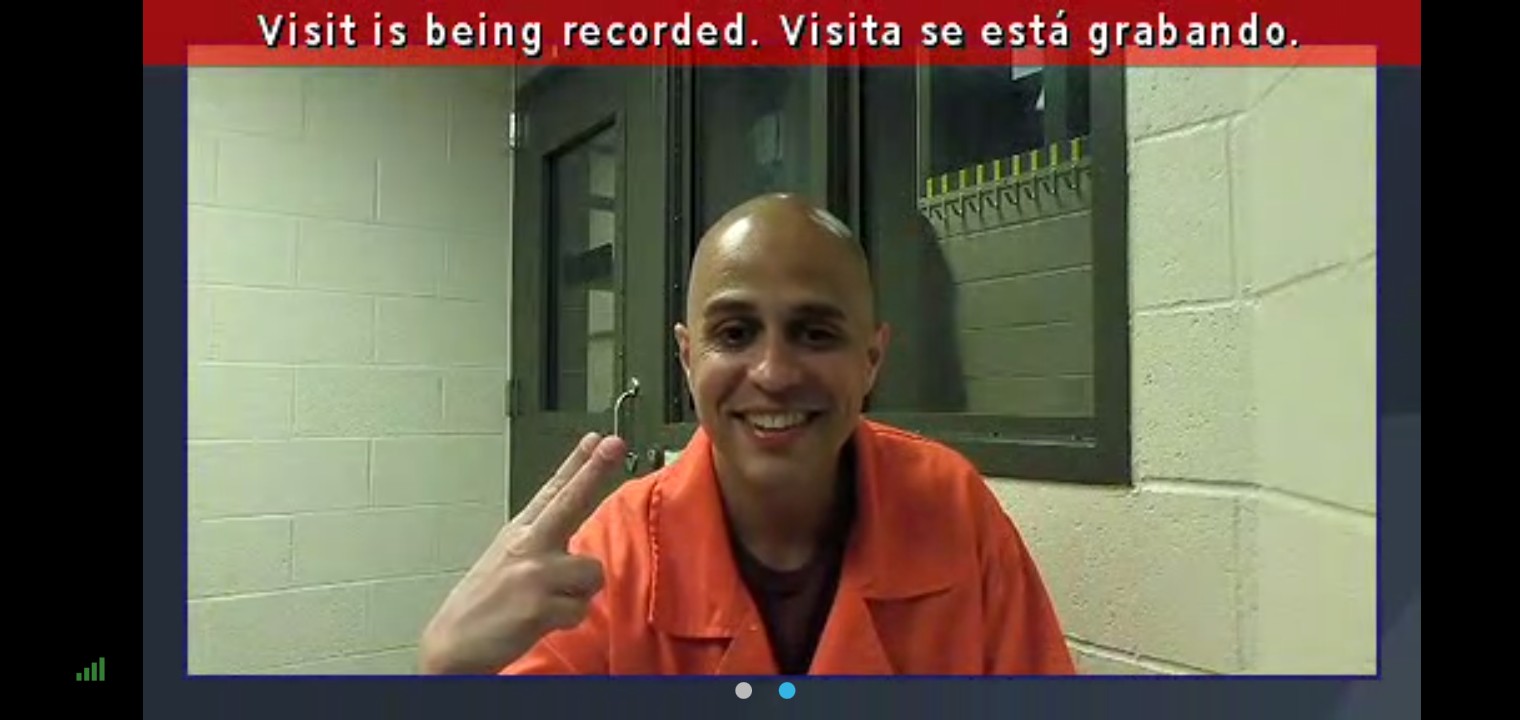
2020 ignited in global protests following the police killing of George Floyd in Minneapolis. Almost two years later, that same police force murdered Amir Locke while he grabbed for a gun after police startled him while sleeping. George Floyd’s killer, Derek Chauvin received a life sentence, while another Minneapolis officer Kim Potter, received a short sentence. This from a teary eyed judge who seemed to have more empathy for her plight than that of the victim Daunte Wright. Qualified immunity and police unions almost guarantee no accountability, no charges or sentencing.
These same rules apply to prison guards mirroring that of their police counterparts. In 2020, while the streets were filled with protesters, prisoners were protesting the same brutality with no relief even during the pandemic. Because not much has changed, defunding the police and prison industrial complex remains an ongoing important conversation.
Movement Talks interviewed two organizers, Rob Baker, director of Principles NOT parties, and Trik Parisimo who volunteers with Human Rights Coalition, what successfully defunding the police/prison industrial complex means to them and abolishing those systems was a part of what defund police means, what would replace it?
5 changes to fight the prison industrial complex
Michael Rivera, a Pennsylvania prisoner and victim of the prison pipeline beginning with the foster care system, juvenile justice system and into the state penal system provides a written response. He writes:
“To properly understand the currently foreign concepts of both transformative and restorative justice, you must first understand that the present police and prison industrial complex systems are not broken, they’re operating for their intended purposes of discriminating against Black and Brown people.” He feels a difference can only be achieved through changes in laws and policies which would free up money that could be reallocated to where it’s really needed. The 5 changes he feels could make an impact are to elimate:
- All S.W.A.T. Teams, and all other paramilitary police groups, as well as the usage of all military-grade weapons in community policing;
- ‘No-Knock’ warrants nationwide;
- Prison sentences for nonviolent drug offenses;
- Prison sentences for probation or parole violations;
- Cash bails nationwide.”
Read the full response here.
Protecting rights and fighting corruption
Rob Baker, director of Principles NOT parties,shares with the author that people are discussing defunding because politicians are not committed to changing the criminal legal system. To him, the purpose of the police is to defend our rights and to serve the community. On that note he says, “we need a police force that is focused on protecting us from violence and getting dangerous instruments of violence out of the hands of people with a history of violence instead of spending tremendous resources policing, prosecuting and imprisoning people.”
He explains “they are not saying that we don’t need an organized group that defends people’s rights, they’re saying these groups (referring to police) are so bad at doing that, that we need to start over.” He believes they focus on low level crimes like drug and traffic stops instead of preventing violent crimes and this disproportionately affects Black and Brown people. He feels the Supreme Court’s decision to grant qualified immunity has created a corrupt legal system.
“If you’re not holding powerful government officials accountable, you’re inviting abuse, and abusive and corrupt public officials are not effective public officials.” See the full interview here
Defunding the incarceration system
Trik Parisimo who volunteers with Human Rights Coalition believes that the lack of accountability and oversight has created a similar system of abuse and corruption inside prisons. She says, “When we talk about defunding the police, defunding the incarceration system has to be in the same breath because there are police officers who are working in these prisons who have the same backwards way of thinking of things and the people in charge really don’t hold anyone accountable.”
Her response on how that can change is, “It’s time that we get those people out of their positions especially if they are not qualified. Police officers do not know how to de-escalate situations, they are not healthcare professionals. They do not know how to provide therapy for people who are going through a mental health crisis. So when you look at police officers and you look at the officers within prisons and talk about defunding their institution, it’s really about just putting that money somewhere that will actually provide services for people.” See the full interview here
Finally, a fitting explanation of the term defunding the police is described by protester Ty Hobson Powell during 2020 George Floyd protests in D.C. when he said, “Police are paid with taxpayer money. If they are not answerable to us, we can demand new service and that’s what this is.”
Summing up responses from the community, it’s fair to say there is no one meaning for defunding the police but what is clear is that everyone wants change. The lack of accountability of law enforcement has continuously led to abuse of power and corruption impacting Black, Brown and poor people. Policing as a tool of oppression must be challenged.
Our Community Based News Room publishes the stories of people impacted by law and policy. Do you have a story to tell? Please contact us at CBNR. To support our Community Based News Room, please donate here.




